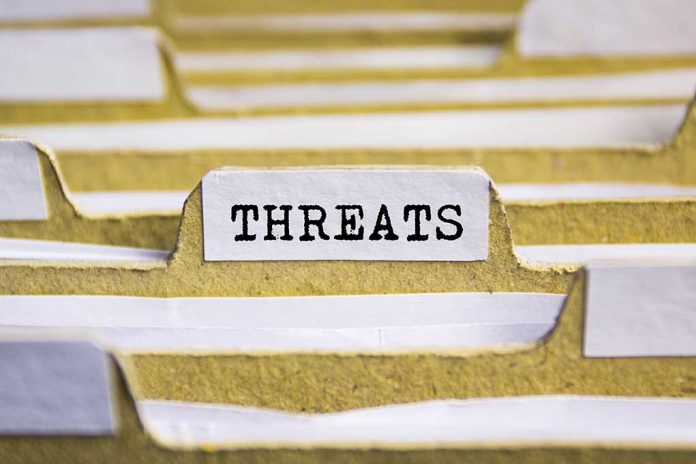
(UnitedVoice.com) – Lawmakers in the House recently voted to ban TikTok. The Senate now has the bill and will decide whether to take it up. One senator alleged his life was threatened over the issue.
The Senate is currently debating whether to vote on the TikTok ban that passed the House with bipartisan support. There are reports that it could take months before lawmakers actually vote on the legislation. On March 20, Senator Thom Tillis (R-NC) posted about the potential ban on X, formerly Twitter. He shared audio of a voicemail left for him at his office.
The voicemail is of a woman saying she would find the North Carolina senator and “shoot” him if he bans TikTok. She goes on to say the social media company is “people’s jobs” and her “only entertainment.” The caller goes on to reiterate that she’d shoot Tillis and “cut [him] into pieces.”
The senator accused the social media company of launching a “misinformation campaign” that’s “pushing people to call their members of Congress.” Tillis said the company is “proving just how dangerous their current ownership is” with the campaign. He also reminded people that calling and threatening a member of Congress can get them thrown in jail.
The video can be viewed on X here.
The campaign Tillis is referring to is a message on TikTok prompting users to call their representatives and ask them to vote against the potential ban. The notification on the app tells users that a ban would impact 170 million people in the US, warning that the “future of creativity and communities [they] love on TikTok could be shut down.”
The message from TikTok has a red “call now” option, allowing people to easily reach their senators.
A bipartisan group of senators is currently pushing the government to declassify some of the intelligence information lawmakers received in a closed-door meeting with intel agencies. It’s not clear when the bill could go to the floor for a vote, but it’s a very divisive issue. The Pew Research Center found only 38% of Americans supported a ban in December.
Copyright 2024, UnitedVoice.com






















